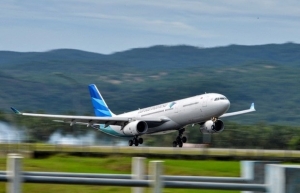Indonesia sees increasing demand for imported steel
 |
| Indonesia sees increasing demand for imported steel, illustration photo/ Source: freepik.com |
Jakarta - Chairman of the Indonesian Iron and Steel Industry Association (IISIA) Purwono Widodo on November 7 said that the Southeast Asian country’s steel demand surges in 2023 due to the construction of major national projects.
The official said that the country’s steel consumption in 2023 is likely to reach 17.9 million tonnes, an increase of 5% compared to 2022. Meanwhile, its steel production capacity in the year is just about 14.4 million tonnes. Therefore, the country needs to import about 14% for HS72 steel products.
Purwono said that Indonesia mostly imports raw materials to serve the manufacturing industry. According to IISIA data, the volume of imported steel in Indonesia in the period from 2018 to 2022 saw many fluctuations due to the impact of the COVID-19 pandemic. Before the pandemic, imports increased steadily, reaching 19 million tonnes in 2019. This figure fell sharply in 2022 to 14.1 million tonnes before increasing again in 2021 and 2022 to 15.6 million tonnes and 16.8 million tonnes, respectively.
In the first quarter of 2023, the country’s steel import volume rose 7.7% year on year or equivalent to 3.8 million tonnes. However, it dropped 22% from 4.045 million USD in 2022 to 3.154 million USD in the first quarter of 2023.
 | Indonesia flies first commerial flight using palm oil-blended jet fuel Indonesia on October 27 conducted its first commercial flight using palm oil-blended jet fuel, as the world's biggest producer of the commodity pushes for wider use of biofuels to cut fuel imports. |
 | Indonesia has nearly 18 million crypto investors Indonesia had 17.91 million cryptocurrency investors as of September, marking a 0.67% increase from the previous month’s figure of 17.79 million investors, according to the Commodities Futures Trading Regulatory Agency (Bappebti). |
 | Indonesia encourages MSME to enter digital ecosystem Indonesian Trade Minister Zulkifli Hasan has urged regional governments to support the micro-, small-, and medium-sized enterprises (MSMEs) to step up digital transformation so as to enhance competitive edge for domestic products. |
What the stars mean:
★ Poor ★ ★ Promising ★★★ Good ★★★★ Very good ★★★★★ Exceptional
Related Contents
Latest News
More News
- Russian President congratulates Vietnamese Party leader during phone talks (January 25, 2026 | 09:58)
- Worldwide congratulations underscore confidence in Vietnam’s 14th Party Congress (January 23, 2026 | 09:02)
- Political parties, organisations, int’l friends send congratulations to 14th National Party Congress (January 22, 2026 | 09:33)
- 14th National Party Congress: Japanese media highlight Vietnam’s growth targets (January 21, 2026 | 09:46)
- 14th National Party Congress: Driving force for Vietnam to continue renewal, innovation, breakthroughs (January 21, 2026 | 09:42)
- Vietnam remains spiritual support for progressive forces: Colombian party leader (January 21, 2026 | 08:00)
- Int'l media provides large coverage of 14th National Party Congress's first working day (January 20, 2026 | 09:09)
- Vietnamese firms win top honours at ASEAN Digital Awards (January 16, 2026 | 16:45)
- ASEAN Digital Ministers' Meeting opens in Hanoi (January 15, 2026 | 15:33)
- ASEAN economies move up the global chip value chain (December 09, 2025 | 13:32)

 Tag:
Tag:



















 Mobile Version
Mobile Version